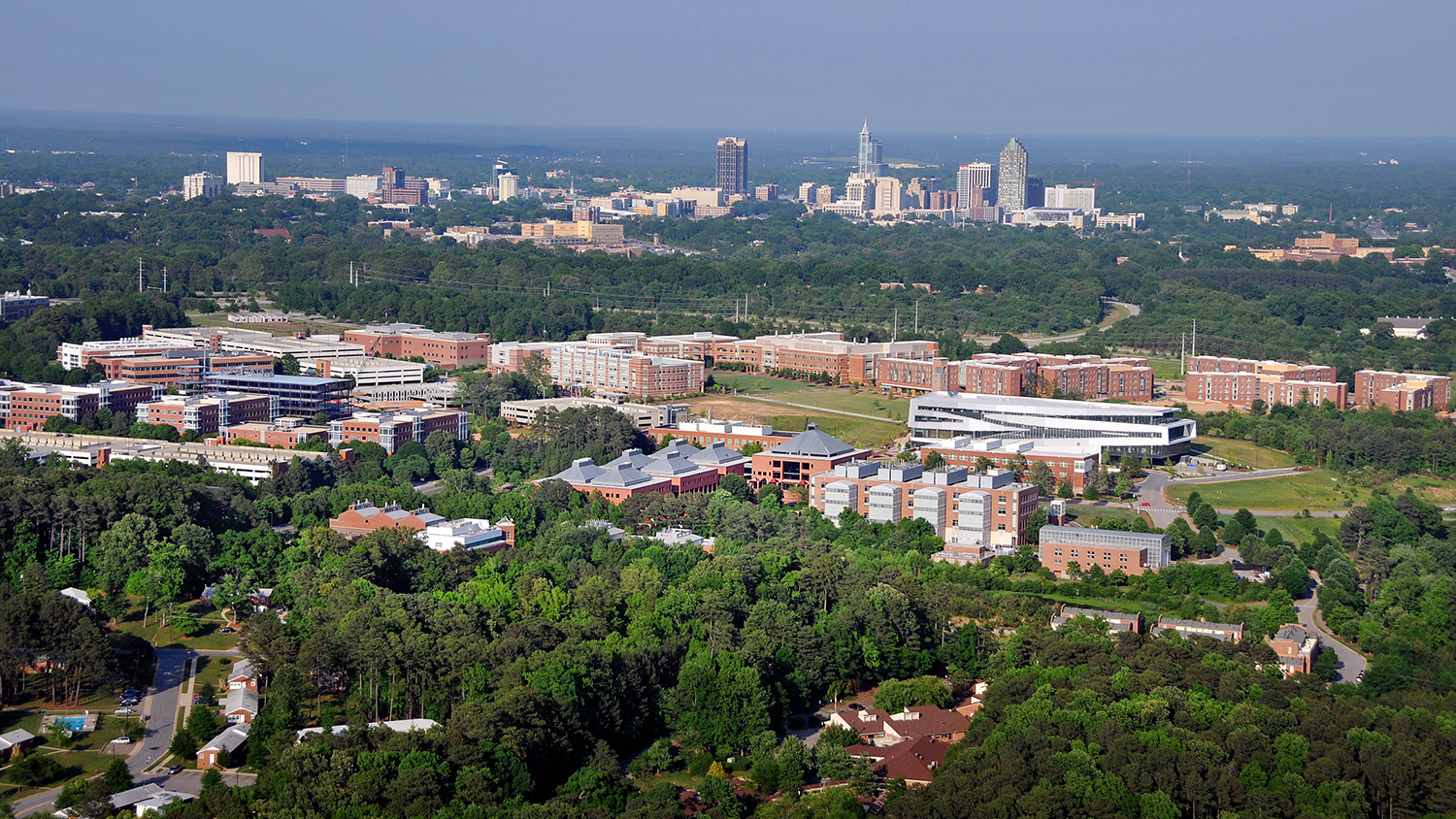A Celebration of Collaboration

2018 marks the 50th anniversary of Cooperating Raleigh Colleges, a nonprofit promoting higher education collaboration in Raleigh and throughout Wake County. The six member institutions — Meredith College, NC State University, William Peace University, Saint Augustine’s University, Shaw University and Wake Technical Community College — bring students, faculty and staff together to foster creativity and problem solving to benefit campuses and the community at large.
CRC promotes educational and cultural objectives of member institutions by encouraging and fostering cooperation and understanding, increasing educational options for students, increasing member institutions’ visibility, sharing the use of educational facilities, promoting the role of higher education in the region, and providing opportunities for joint initiatives among member institutions.
The nonprofit’s formation came from a desire to broaden the areas of study for students. In 1972, an agreement provided that members of the CRC community have open use of the library facilities on all member institutions’ campuses. The combined collections of the current CRC member libraries now exceeds five million volumes. Today, any full-time student may cross-register for classes at another member institution for free.
“To promote a more collaborative community, we encourage students, faculty and staff to visit member campuses to broaden their educational, professional and social perspectives,” said Jenny Spiker, CRC’s director. “CRC seeks to further this aim through offerings like professional development workshops for non-tenure track faculty and university staff, and through the cross-promotion of educational and cultural events.”
Additional development opportunities include emergency and crisis management workshops and the annual Library Workshop, held most recently in July 2018 at Hunt Library. The NCSU Libraries also boasts the largest library system in the CRC, due to interlibrary borrowing relationships with other research-level consortia such as the Triangle Research Libraries Network.
“Membership in the CRC benefits not only the NCSU Libraries with networking and professional development opportunities, but NC State as a whole,” said Carolyn Argentati, a member of CRC’s Libraries Committee and deputy director of the NCSU Libraries. “CRC helps members learn about public events, programs and lifelong learning opportunities offered by each of its member institutions that are also open to the greater Raleigh community. In addition, CRC can help community organizations connect with universities to help identify prospective volunteers or employment opportunities.”
For more than 25 years, CRC has administered the CRC Education Channel. This public access channel — channel 18 on the Raleigh Television Network — provides another means of increasing knowledge among member institutions by sharing their campus information and events.
“Through each of our activities and initiatives, we want to spread the word that Raleigh is an amazing college town, and has so much to offer through our colleges and universities,” said Spiker. “We want to let the community know that each campus is vital to the area’s social fabric and economy.”
To demonstrate higher education’s importance to the region, CRC will release the results of its latest economic impact study — conducted by Michael Walden, William Neal Reynolds Distinguished Professor and extension economist in the College of Agriculture and Life Sciences — on September 24. The reveal will take place during CRC’s 50th anniversary celebration at the North Carolina Executive Mansion.
CRC will showcase efforts to serve higher education institutions and citizens of the greater Raleigh community. The event will include an address from Governor Roy Cooper and networking with campus leaders, state legislators, Raleigh city council member and community influencers.
Looking ahead to the future of CRC, Spiker hopes to strengthen the ties between member institutions and grow the organization’s reach within the community. Reaching these goals will involve efforts to promote diversity amongst campuses and support entrepreneurship efforts that will benefit all campuses and the community at large.
“Our member institutions remain at the forefront of efforts to increase the social, economic and educational capital of the area,” said Spiker. “Through CRC, we can engage in collaboration that benefits faculty, staff, students and community members, and makes immediate and long-term progress possible.”
- Categories:


